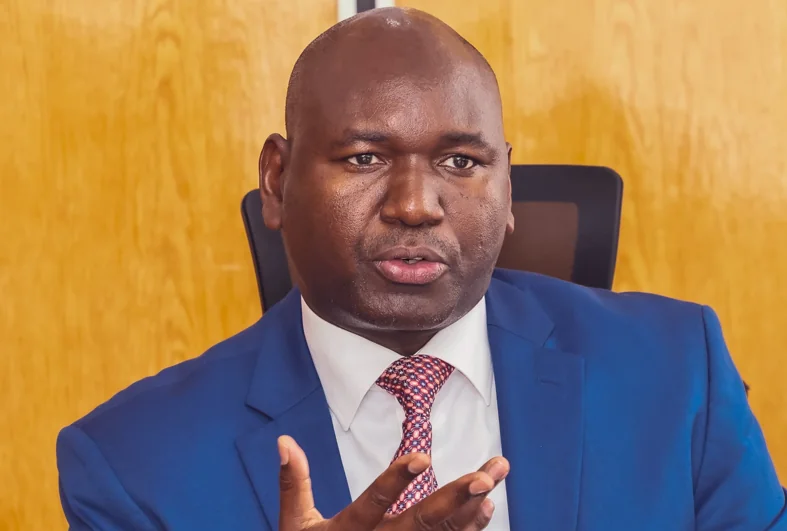I’m still Mukorino at heart

When he received a call in 2017 that he would collaborate with gospel artist Guardian Angel, Phil Kimemia was overjoyed, especially because he was Guardian’s huge fan.
“It was unexpected and a dream come true,” recalls his elder sister, Lylow Karima, a content creator and emcee.
The song Nadeka was recorded and the video shot in two weeks. The final product was an instant hit.
“The release of the song marked the beginning of my music career,” recalls the father of one.
Since then, he has had three singles; NayoNayo, Mshindi and Nitatembea Nawe. He has also had a few collaborations such as Mfalme wa Moyo Wangu with Janice, Nishatulia with Starborn Favour, Sidonyo featuring Bruz Newton, Nena Nami featuring Cee and Pokea Sifa featuring Cate Njane. All these made him win the best male artist of the year award at the 2019 Kenya Gospel Music awards.
Karima attributes this success to the discipline and commitment that Phil has when it comes to his music. The siblings are a pillar of support to each other, being that they are in the same creative industry space. The death of their father too in 2012 also brought them even closer.
“My brother has been my rock and stepped in as a father figure and a best friend when our dad died. Our parents instilled in us the value of togetherness since we were young. I share with him almost everything. Whenever I have a gig, he pushes for it on social media and I do the same for him. He’s such an amazing brother,” she narrates.
They both grew up in a musical family and his parents used to actively sing in church. Phil’s elder sister Reay Kimemia, who is also a gospel artiste, taught him how to create music at an early age. They also formed a dance crew, Revolutionists Dancers, which was among the first Akorino dance crew.
Being Mukorino
As Karima recalls, growing up as a member of Akorino church came with both positive and negative vibes.
“Despite the fact that we have grown up dancing, the church found it so hard to accommodate this. At some point, we got harsh warnings telling us not to practice within the church premises and that we shouldn’t dance on television too. My mum went through a lot of backlash from church and the members would tell their friends not to associate with us,” she recalls.
Karima shares how they faced criticism not only from the church, but the society at large. Outside, the society was judgmental and had a prescribed way they thought Akorinos should live. However, there were positive things about growing up as an Mukorino.
“There are some life rules that were instilled in us. It doesn’t matter where I go or what I do, there are some values that I will still hold dear. We got to know God from a tender age, since you grow up born again,” she says.
While Karima found a way to integrate her faith with her content creation, in 2020, Phil finally opted to ditch the turban and seek his own path. “As you grow, you get to find yourself. I grew up in the Akorino church, but there got to a point I had to be me. The main point was I wasn’t leaving God, it’s just that I left that church. My family was supportive,” he says.
He adds, “Removing it (the turban) did affect me in some aspects to date. When I’m on the road walking and I hear someone mentioning Akorino, I still feel like I’m the one being called. Whenever I see a Mukorino passing, I still feel connected to them,” says Phil.
When she heard that her brother had ditched the turban, Karima’s prayers was that it doesn’t negatively impact his music. She is proud of the growth that her brother has made so far and how his faith has grounded his music.
“I loved the fact that he respected each and everyone of us. He took time and called us individually telling us what he wanted to do and I was okay. Remember it’s a personal journey,” she says.
Having been a funny girl since childhood, Karima (who was also nicknamed Katoose by her mother) always mimicked her neighbours, teachers, friends— from how they look, how they walk to how they talk. Her social media pages, Lylow Karima has entertaining content, which revolves around the life of a fundi.
“I love making people happy, that is why I create content. I hate sad stories, heartbreaking stories and watching such makes me depressed,” says the mother of two.
Though she still hasn’t removed her turban, Karima believes that a personal relationship with God is what has assisted her know how to handle her career. She doesn’t allow the turban to dictate what she does or doesn’t do.
“The turban can sometimes restrict you from accessing opportunities such as commercial Ads, acting careers, modelling and sports. You’ll go running in a booty short and the next thing, you’ll be trolled,” she narrates.
She adds; “I think it’s possible to be successful even with the turban. Phil has grown musically not because of the turban, but because of his relationship with God and his talent,” she continues.
There are those who would judge him simply because he had the turban. Phil says that there are people who stopped talking to him simply because he removed his turban.
Love and family
When it comes to the church, Karima observes that the church has adjusted, especially with the coming to age of millenials and Generation Z.
“The world itself has evolved, our grandfathers didn’t attend schools. They didn’t believe in modern medicine, or even interacting with the non-Akorino. How can you survive now really? You move with the change. There are a set of beliefs that I still respect and do, especially when attending an Akorino church,” she says.
Phil is married to popular Selina actress, Celestine Gachuhi, who also played the role of Selina. Karima reveals how the couple didn’t have an easy time at the beginning of the relationship as they received a lot of negativity online.
“What they really needed was love and support. Personally, I love Phil’s wife and I’m always grateful she came into his life. More than that, they have a beautiful baby girl. We can’t replace these two with anyone in our lives,” she says.












